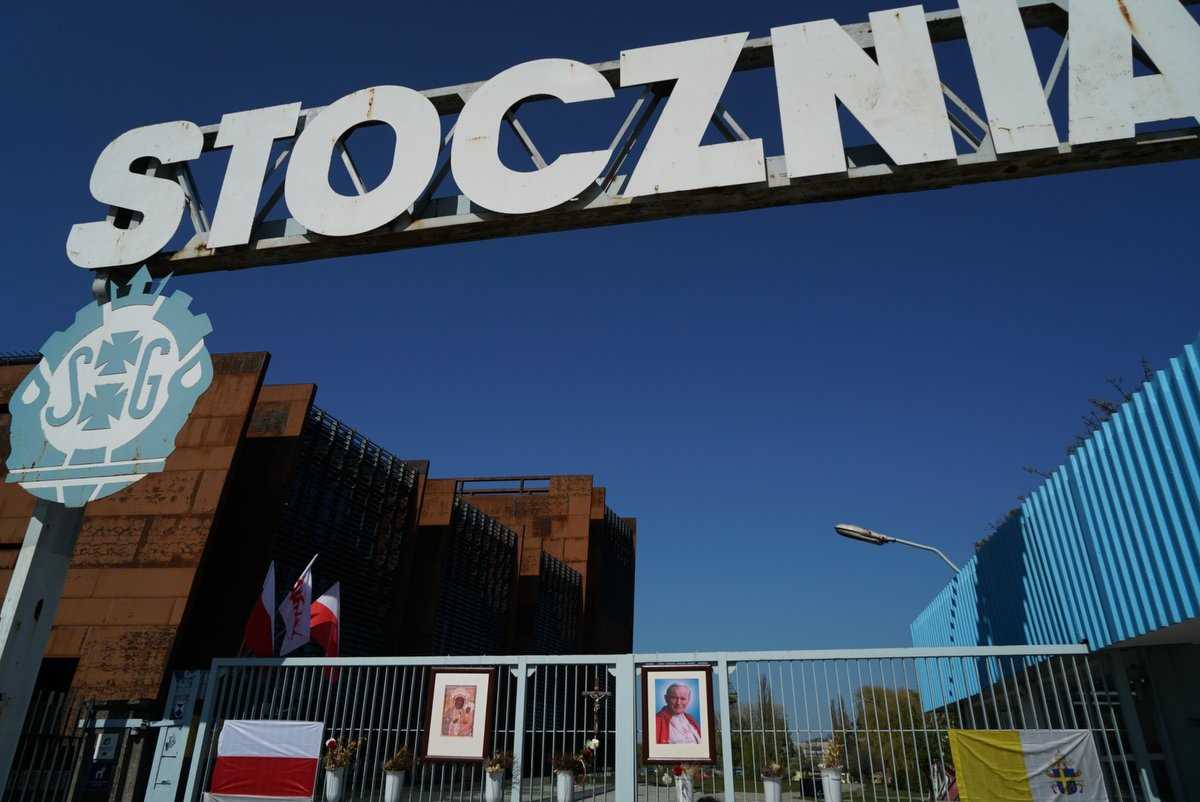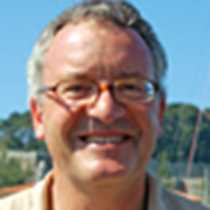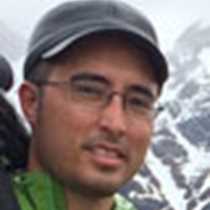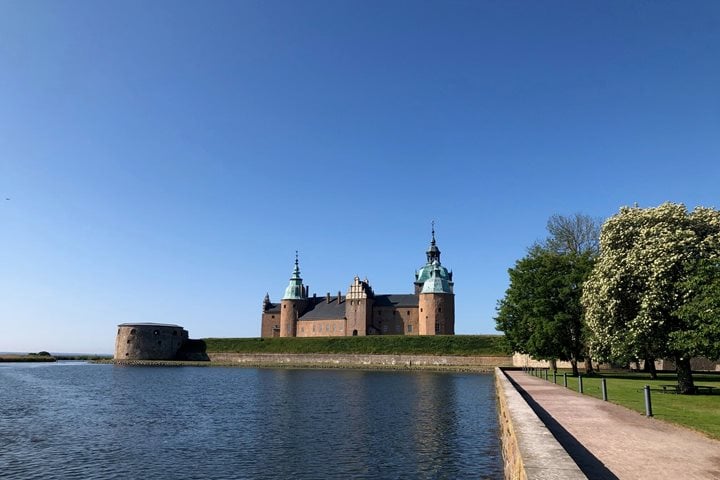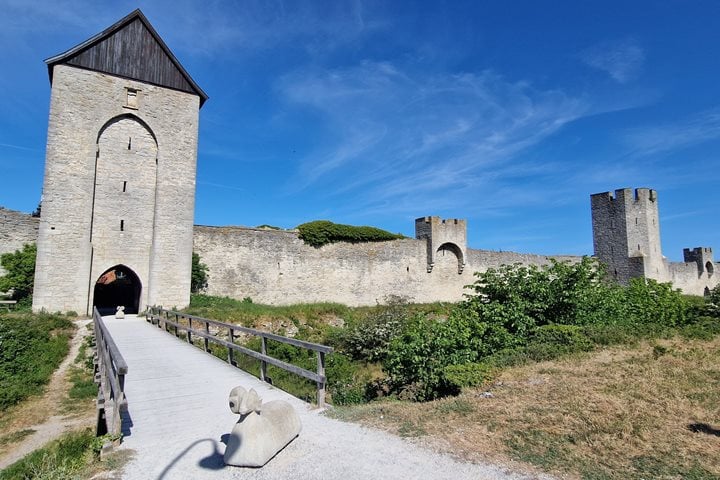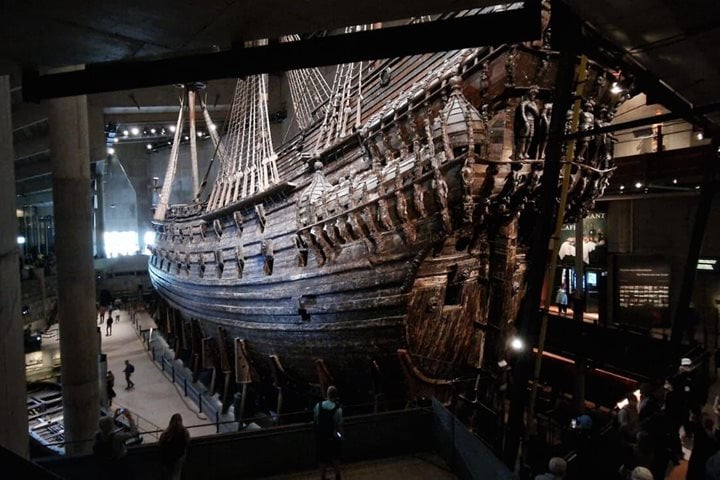We had the warmest day of the voyage so far for our visit to the Polish Baltic
Destroyed by the advancing Soviet army in the closing stages of the war – for Gdansk housed the latest model U-boats, much feared by the Allies – a section of the old city was rebuilt in the lean years of peace after 1945. It is a story we have seen repeated in many places around the Baltic, the loving restoration and preservation of heritage right down to the last cobblestone, a necessary bridge to their past for people traumatised by the catastrophic destruction of two world wars.
In Soviet times, the Lenin shipyard was a major employer, one of the world’s great shipyards. It was here in the latter quarter of the twentieth century that Lech Wałęsa, a shipyard electrician stood up to the country’s communist government and demanded, firstly, trade union rights and then free elections. The election of a popular Polish Pope, sympathetic to the aims of Solidarnosč (the name given to the movement led by Lech Wałęsa) added a crucial international dimension to the mix.
Visiting his country for the first time as the leader of the Catholic Church, Pope Jean Paul II threatened to return immediately to Rome when his planned meeting with Lech Wałęsa was abruptly cancelled. An embarrassed government reversed the decision and, within months, it had conceded the demands of Solidarnosč, precipitating a domino effect within the Eastern Bloc that saw communism collapse from within, even as Mikhail Gorbachev was introducing his perestrioka reform agenda back in the USSR.
Today, a remarkable museum dedicated to the ideals of the European Union tells this story in a modern building designed in rust-coloured metal to evoke the former shipyard. Ironically, in a free market economy, work at the shipyard has shrunk dramatically due to Asian competition.
Other optional visits included a visit to the Cathedral at Oliwa, a reminder of the depth of religious faith in this predominantly Catholic country. Here, we were privileged to hear a recital on a remarkable organ featuring mechanical bells-and-trumpets. Many guests enjoyed free time in the old city, walking beside the river to view the medieval crane and historic gateways as well as taking time to enjoy the cafes and amber stores.

